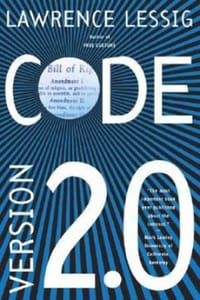书籍介绍
There's a common belief that cyberspace cannot be regulated-that it is, in its very essence, immune from the government's (or anyone else's) . 'Code', first published in 2000, argues that this belief is wrong. It is not in the nature of cyberspace to be unregulable; cyberspace has no "nature." It only has code-the software and hardware that make cyberspace what it is. That code can create a place of freedom-as the original architecture of the Net did-or a place of oppressive .
Under the influence of commerce, cyberspace is becoming a highly regulable space, where behavior is much more tightly led than in real space. But that's not inevitable either. We can-we must-choose what kind of cyberspace we want and what freedoms we will guarantee. These choices are all about architecture: about what kind of code will govern cyberspace, and who will it. In this realm, code is the most significant form of law, and it is up to lawyers, policymakers, and especially citizens to decide what values that code embodies. Since its original publication, this seminal book has earned the status of a minor classic. This second edition, or Version 2.0, has been prepared through the author's wiki, a web site that allows readers to edit the text, making this the first reader-edited revision of a popular book.
劳伦斯·莱斯格,现任斯坦福大学法学院教授,是斯坦福大网络与社会研究中心创始人,全球是最负盛名的网络法律专家,被《商业周刊》称为“互联网时代的守护神”。“网络法律界具原创思想的教授”、“对互联网最具影响的25人之一”,被《纽约客》称为“互联网时代最重要的知识产权思想家”。他几乎参与了所有重大论争:美国在线一时代华纳合并案、Napster音乐版权大虞、微软反垄断案、俄罗斯黑客事件、DVD破解案……他还对美国微软反垄断案审判结果产生了重要的影响。
目录
code:version 2.0
PREFACE TO THE SECOND EDITION
PREFACE TO THE FIRST EDITION
Chapter 1. Code Is Law
Chapter 2. Four Puzzles from Cyberspace
显示全部
用户评论
Some original ideas and some interesting cases. However, it's too much of a law review piece.
这本书可以说是当前美国网络法最重要的著作之一,讲了政府、商业以及技术等等的力量融合起来以后可能发生的改变和如何应对这些变化。其中最有意思的一个说法是code is law,正如上帝(或者我,as u like)定义了这个世界的物理规则一样,我们定义了网络世界的物理规则。
强烈推荐
He always makes some compelling in-depth arguments.
Lessig教授的经典大作。除法律之外,还有其他的规制模式(modality),包括市场、规范和架构。其中,在网络空间中最为有意思的就是“架构”。
2.0版本改动不大,多年之前读过初版的中文版,但是感受不深。最近重读,比对中国现行的实践,感觉历史又再转译中上演。
第二遍读,温故而知新。2020年了,今天变好了吗?没有。
a good review of copyright, fourth amend and property law.夹了很多关于民主和政府治理的私货。主旨是对于互联网一定需要做出某种政策选择,放任自流是不行的。写作本身非常好,清晰易读。可惜上完相关课后已经太熟悉他说的绝大部分内容了,很难被冲击到。
关于网络监管,很有意思。via 椎名

